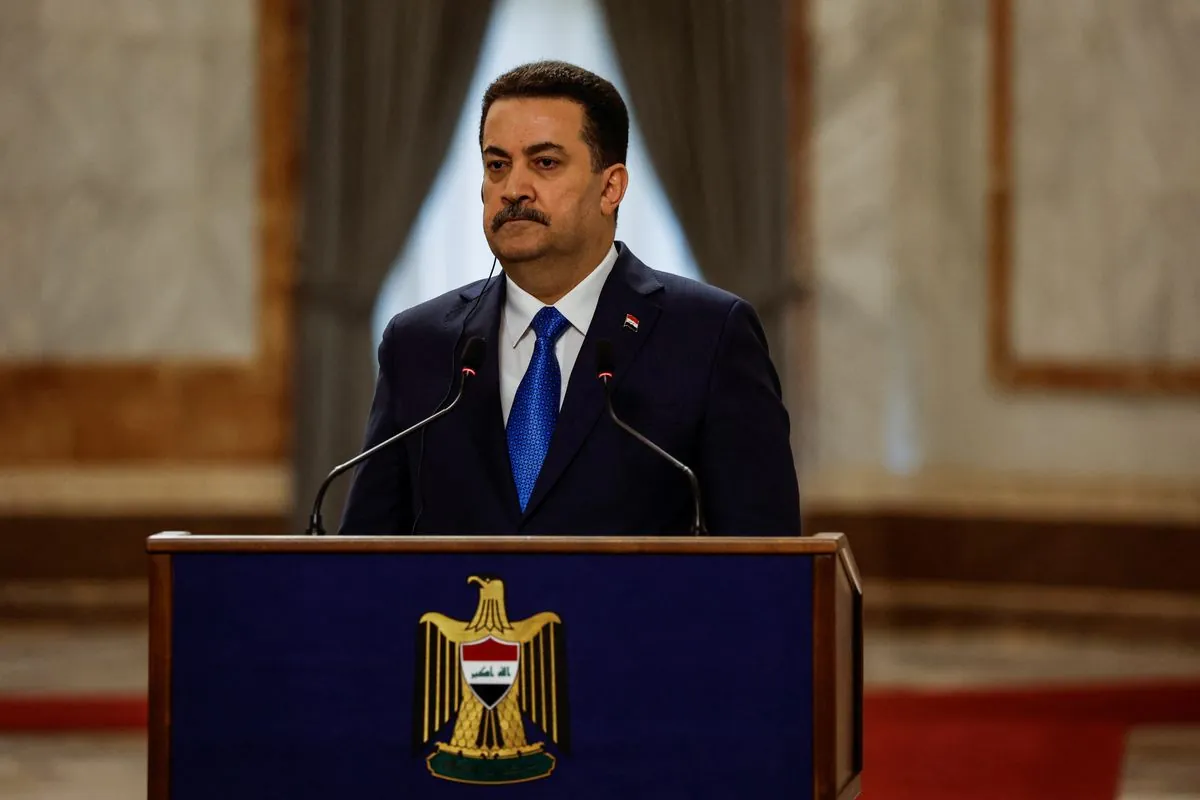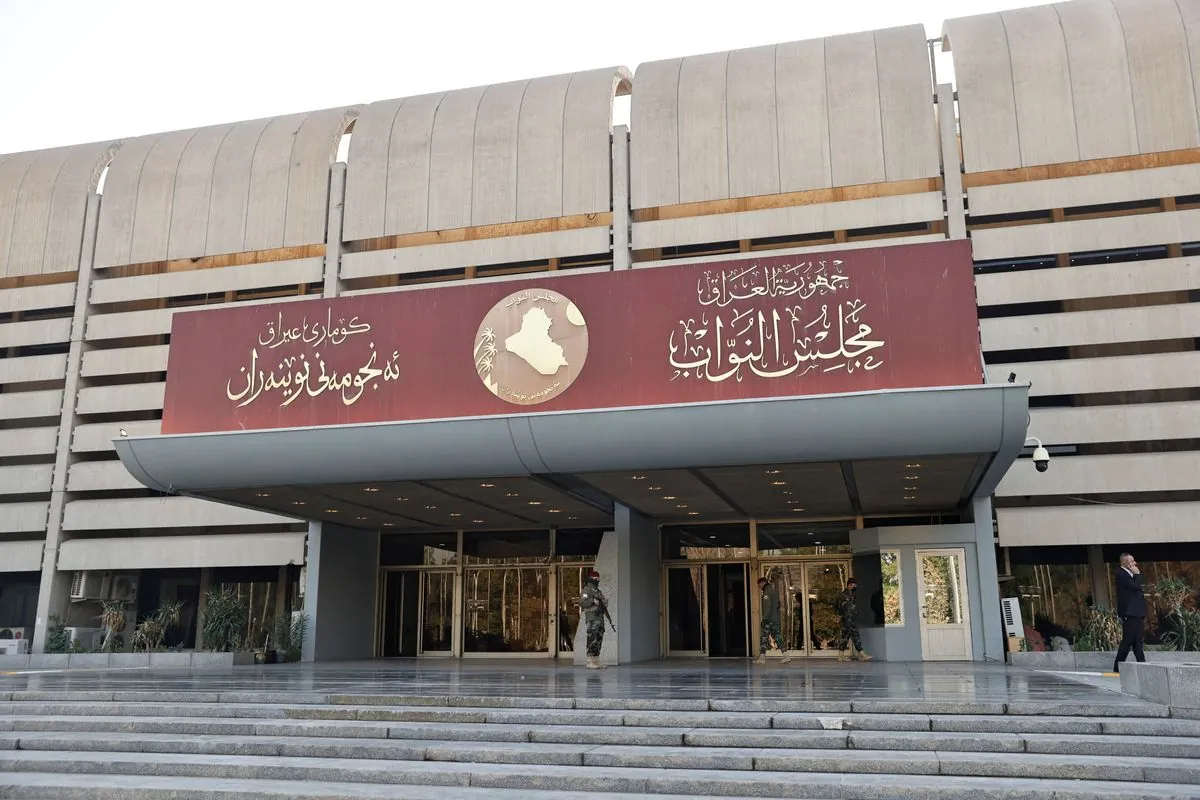Iraqi PM's Adviser Refutes Spying Claims, Clarifies Employee Arrest
A senior adviser to Iraq's Prime Minister has dismissed recent allegations of spying within the premier's office. The claims, which emerged in late August, have stirred controversy in Iraq's political landscape.

In a recent development, Fadi al-Shammari, a political adviser to Iraqi Prime Minister Mohammed Shia al-Sudani, has firmly rejected allegations of espionage within the premier's office. These claims, which surfaced in late August 2024, have caused significant controversy in Iraq's political sphere.
Al-Shammari addressed the issue in an interview with an Iraqi broadcaster, stating, > "This is an inflated lie." [[Fadi al-Shammari, political adviser to Iraqi Prime Minister]]
The adviser's statement marks the most explicit denial from a senior member of the prime minister's team regarding the accusations.
Since late August, Iraqi media outlets and lawmakers have been circulating reports alleging that employees in Sudani's office were arrested on charges of spying on senior officials and politicians. These claims have stirred public interest, particularly as Iraq has experienced a period of relative stability since Sudani assumed office in late 2022.

Al-Shammari provided clarification on the actual incident that may have sparked these rumors. According to him, an employee was indeed arrested in August, but the circumstances were markedly different from the alleged espionage. The individual in question was detained for impersonation, not spying or wire-tapping.
"(He) talked to lawmakers using different numbers and fake names and asked them for a number of different files,"
The adviser emphasized that there was no spying or wiretapping involved in this case.
Iraq, a federal parliamentary republic established after the 2003 U.S.-led invasion, has faced significant political challenges over the years. The country's political system, based on the 2005 Constitution, includes a unicameral legislature known as the Council of Representatives. Parliamentary elections, typically held every four years, play a crucial role in shaping the nation's political landscape.
Al-Shammari suggested that these allegations might be an attempt to undermine Prime Minister Sudani ahead of the parliamentary polls expected in 2025. The timing of these claims is particularly sensitive, given Iraq's history of political instability and the complex negotiations often required to form governments.
Iraq's media landscape, which includes both state-run and private outlets, has played a significant role in disseminating these allegations. The country's struggle with corruption and its history of political violence and sectarian conflicts add layers of complexity to such controversies.
As Iraq continues to navigate its political challenges, the refutation of these spying allegations by a senior government official highlights the ongoing tensions and the importance of transparency in the nation's political discourse. The incident serves as a reminder of the delicate balance between security concerns and the need for open communication in Iraq's evolving democracy.


































